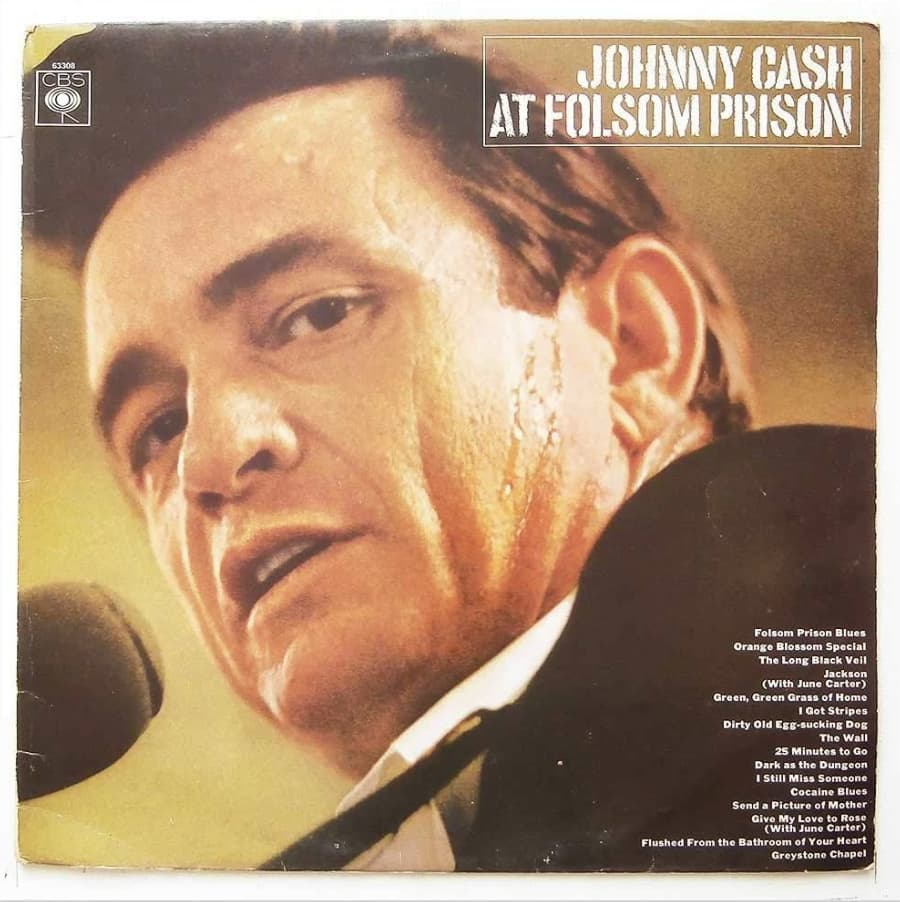
Johnny Cash’s Iconic Comeback: At Folsom Prison
In the landscape of American music, few moments are as powerful or as defining as Johnny Cash’s electrifying live performance captured on the album At Folsom Prison. Released on May 6, 1968, this album wasn’t just another record; it was a resurrection of Cash’s career, a bold statement of authenticity, and a profound connection with a group of society’s most marginalized individuals.
By the mid-1960s, Johnny Cash found himself at a crossroads. Once a dominant figure in the country music scene, he was battling personal demons, including drug addiction, that had led to a significant decline in his commercial success. But Cash, ever the resilient artist, was determined to make a comeback. His fascination with the plight of prisoners, first sparked by his 1955 hit “Folsom Prison Blues,” had never waned. Cash’s desire to perform for inmates became an obsession that he was finally able to realize when Columbia Records underwent a change in management. Bob Johnston, who had taken over as producer, understood Cash’s vision and supported his ambitious plan to record a live album inside a prison.
On January 13, 1968, with the support of his band, the Tennessee Three, along with June Carter and Carl Perkins, Johnny Cash walked into Folsom State Prison in California. The atmosphere was electric as Cash delivered two unforgettable performances. These weren’t just concerts; they were cathartic events, both for Cash and for the inmates who saw in him a reflection of their own struggles and aspirations.
The initial release of At Folsom Prison featured 17 tracks, mostly drawn from the first show, with a couple from the second. Despite minimal promotion by Columbia Records, the album was an instant success, climbing to number one on the country charts and breaking into the top 15 on the national album chart. The live version of “Folsom Prison Blues” became a top 40 hit, marking Cash’s first major single since 1964.
But the success of At Folsom Prison went beyond chart positions. It marked the beginning of a new era for Johnny Cash. The album’s raw energy and emotional depth resonated with audiences, revitalizing Cash’s career and cementing his status as a legendary figure in American music. This album wasn’t just about entertainment; it was about redemption, rebellion, and the power of music to connect with the human spirit, no matter the circumstances.
At Folsom Prison became the first in a series of live albums recorded at prisons, followed by At San Quentin in 1969 and others in the years that followed. The album has been reissued multiple times, with expanded versions in 1999 and 2008, and a special five LP box set in 2018, which included bonus rehearsals. The album’s enduring popularity is a testament to its impact, and in 2003, it was certified triple platinum, with over 3.4 million copies sold in the United States alone.
In At Folsom Prison, Johnny Cash didn’t just reclaim his career; he created a cultural touchstone that continues to resonate more than half a century later. It’s a reminder of the power of music to transcend barriers and to speak directly to the heart.